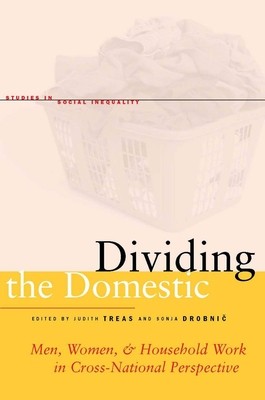
- We will send in 10–14 business days.
- Publisher: Stanford University Press
- ISBN-10: 0804763577
- ISBN-13: 9780804763578
- Format: 15.5 x 23.6 x 2.5 cm, hardcover
- Language: English
- SAVE -10% with code: EXTRA
Dividing the Domestic (e-book) (used book) | bookbook.eu
Reviews
Description
In Dividing the Domestic, leading international scholars roll up their sleeves to investigate how culture and country characteristics permeate our households and our private lives. The book introduces novel frameworks for understanding why the household remains a bastion of traditional gender relations--even when employed full-time, women everywhere still do most of the work around the house, and poor women spend more time on housework than affluent women. Education systems, tax codes, labor laws, public polices, and cultural beliefs about motherhood and marriage all make a difference. Any accounting of who does what needs to consider the complicity of trade unions, state arrangements for children's schooling, and new cultural prescriptions for a happy marriage. With its cross-national perspective, this pioneering volume speaks not only to sociologists concerned with gender and family, but also to those interested in scholarship on states, public policy, culture, and social inequality.
EXTRA 10 % discount with code: EXTRA
The promotion ends in 20d.14:55:55
The discount code is valid when purchasing from 10 €. Discounts do not stack.
- Publisher: Stanford University Press
- ISBN-10: 0804763577
- ISBN-13: 9780804763578
- Format: 15.5 x 23.6 x 2.5 cm, hardcover
- Language: English English
In Dividing the Domestic, leading international scholars roll up their sleeves to investigate how culture and country characteristics permeate our households and our private lives. The book introduces novel frameworks for understanding why the household remains a bastion of traditional gender relations--even when employed full-time, women everywhere still do most of the work around the house, and poor women spend more time on housework than affluent women. Education systems, tax codes, labor laws, public polices, and cultural beliefs about motherhood and marriage all make a difference. Any accounting of who does what needs to consider the complicity of trade unions, state arrangements for children's schooling, and new cultural prescriptions for a happy marriage. With its cross-national perspective, this pioneering volume speaks not only to sociologists concerned with gender and family, but also to those interested in scholarship on states, public policy, culture, and social inequality.


Reviews